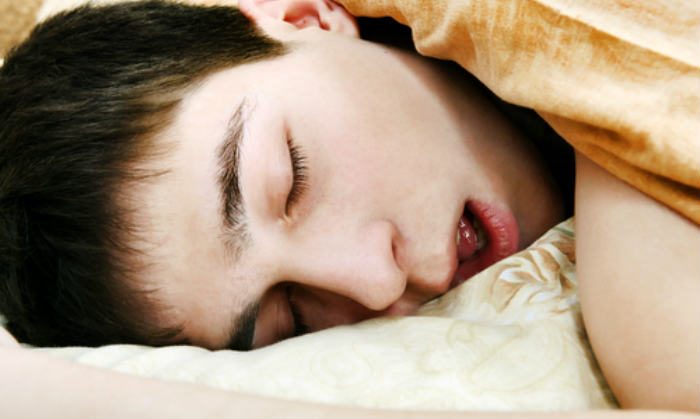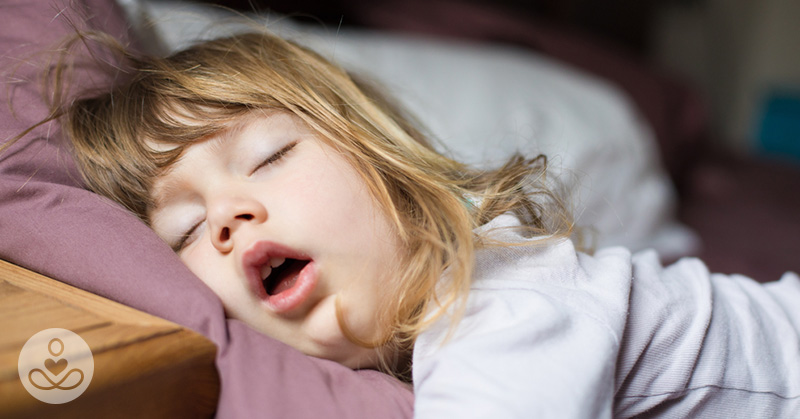Melody Yazdani, mother of 8-year-old Kian, posted a Facebook status that has caused ripples all over the internet. It was around a year in the making and came after a health scare her son endured because of something seemingly harmless – breathing through your mouth.
Since he was born, Kian fulfilled all of the developmental milestones a child should hit. In kindergarten, teachers deemed him determined, intelligent, feisty, and extremely active. But his behavior changed when he hit grade one.
Kian’s teacher started sending home behavior reports explaining that he was getting aggressive with other kids, pushing them around and having trouble controlling his body. Yazdani also noticed the changes her son was exhibiting. His fixations and temper tantrums were subtle at first, but soon got more and more out of hand.
Come second grade, Kian’s behavioral problems worsened while his classmates’ improved. Usually, kids are well-behaved at school and have meltdowns when they come home. But for him, the tantrums were almost 24/7.
“The behavior reports from school started rolling in. ‘Kian is pushing,’ ‘Kian can’t control his impulses,’ ‘Kian is having a hard time staying in his seat,’ and it is going on and on. Almost daily. And I’m mortified,” wrote Yazdani. (1) “Every morning it’s tantrum after tantrum, before we even get out of bed. Hitting and throwing things, and the screaming. All the screaming. Starting at 5 a.m. every morning. We were at a loss – how did he become this way, what could we have done different?”
What Do Behavior Problems Have to Do with Mouth Breathing?

Before long, Kian’s pediatrician suggested he start seeing a therapist who recommended being screened for ADHD (attention deficit hyperactivity disorder). During this time, he was also seeing an allergist as well as a pulmonologist for a cough that wouldn’t stop. Collectively, they had Kian on:
- 2 inhalers for his persistent cough
- 4 rounds of an antibiotic for the postnasal drip
- A steroid
- And more…
Any parent dealing with this many medical professionals knows how overwhelming it can be. The last thing you want to do is pump your child full of medications that may not even be addressing the root problem. And that’s when Yazdani came across a Washington Post article titled, “Could some ADHD be a type of sleep disorder? That would fundamentally change how we treat it.”
The article highlights a surprising point: mounting evidence suggests that many children have been misdiagnosed with ADHD. So, if kids like Kian don’t really have this mental disorder, what is causing their ADHD-like behavioral problems? Researchers seem to think they can be traced back to sleep disorders such as insufficient sleep, insomnia, or obstructed breathing.
“But the most paradigm-challenging idea may be that ADHD may itself be a sleep disorder,” said author Ariana Eunjung Cha. (2) “If correct, this idea could fundamentally change the way ADHD is studied and treated.”
The Shared Symptoms of ADHD and Sleep Disorders
Although we aren’t 100 percent sure how similar the two disorders are, they share numerous symptoms: (3,4)
- Difficulty falling or staying asleep
- Daytime fatigue
- Irritability or anxiety
- Lack of concentration
- Fidgetiness
- Self-focussed behavior
- Lack of focus
- Avoidance of tasks needing extended mental effort
- Symptoms in multiple settings (e.g., at school and at home)
“Every word in this article sounded like Kian,” Yazdani said.
What Do Researchers Know About Sleep Disorders and ADHD?
A 2012 study published in Pediatrics analyzed the breathing of 11,000 children with sleep disorders. Researchers found that those with snoring, mouth breathing, or sleep apnea had a higher chance of behaving as if they had ADHD – by 40 to 100 percent! (5)
“Previous studies have shown that about 75 percent of people with ADHD have sleep disturbances and that the less sleep they get the more severe the symptoms.” (2)
After learning about these studies among others, Yazdani took her son to an ear-nose-throat (ENT) doctor. After his first sleep study, the ENT diagnosed him with both sleep apnea and sinusitis. In Kian’s initial study, they also found that:
- He had absolutely no REM sleep
- His oxygen saturation was in the low 80’s
- His sinuses were 90 percent blocked
On doctor’s orders, Kian had his tonsils and adenoids removed. As a result, there has not only been a positive physical change but mental one, too! Kian is now able to breathe through his nose and get significant REM sleep! His mom was even shocked by his growing appetite and his huge growth spurt. What’s more, Kian is no longer fixated on things or having angry temper tantrums. Although his sleep apnea is still present, it’s mild and something he will likely overcome with the help of his surgery and ENT and sleep doctor.
A Lesson Learned
It has been a long journey, but Yazdani has learned a lot. In closing, read the deep truth that she realized while going through all of this with (and for) her son…
“No one, in my 12 years or parenting, ever told me any of this. All the signs were there, right in front of our eyes, and I had no clue. Kian’s pediatrician, who we loved and trusted, never said a word. The therapist had no clue, the pulmonologist, the allergist, even the ENT and sleep doctor didn’t believe me when I insisted he be seen for this invisible health issue.
Not during any of our regular appointments, or during any of our sick child appointments. And not until we had tangible proof with sleep study results and sinus imaging did anyone believe. I had to find this, diagnose this, and push for treatment myself. And thank God I did.”
If you or someone you know has a child with shared ADHD or sleep disorder symptoms, you should send this article their way. It doesn’t hurt to have the child checked earlier than later.

